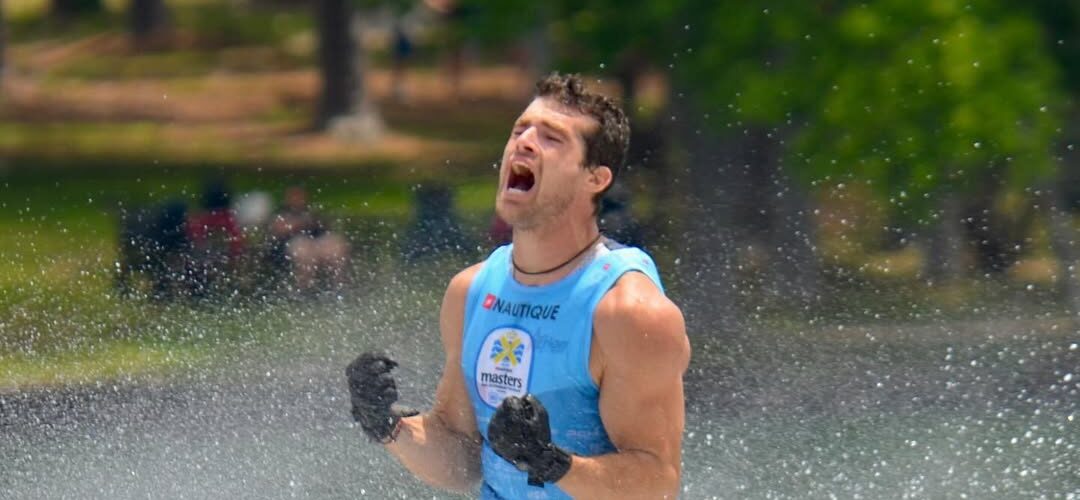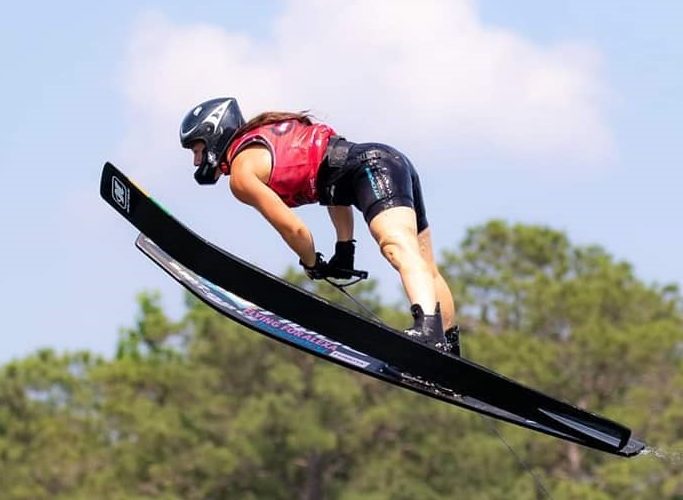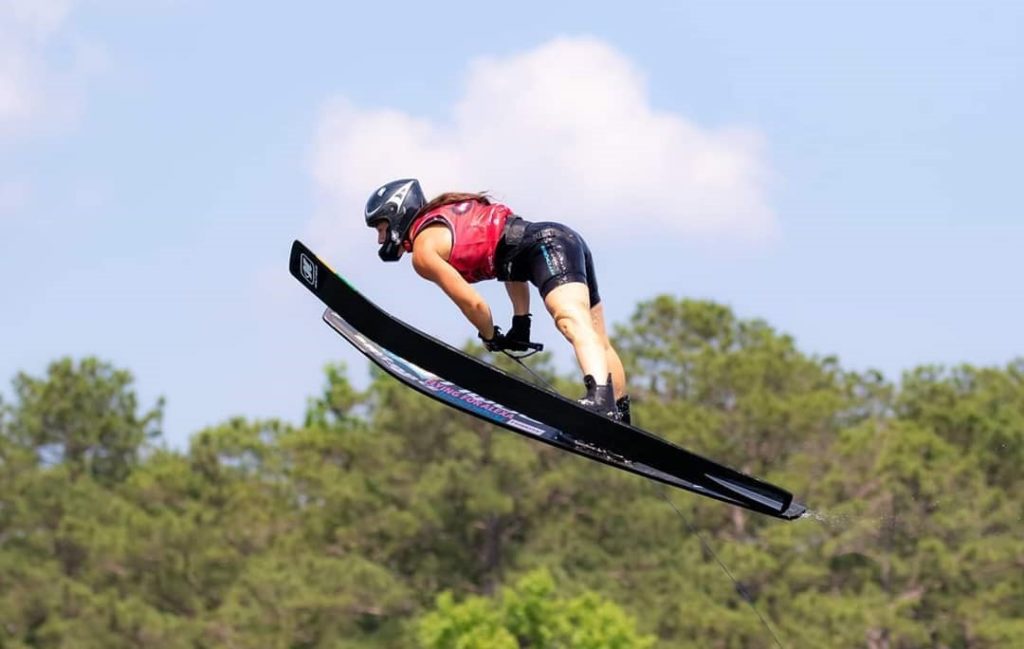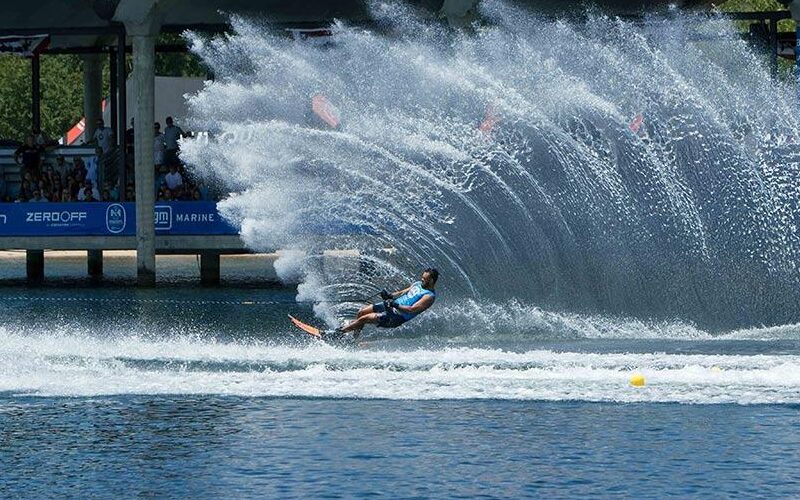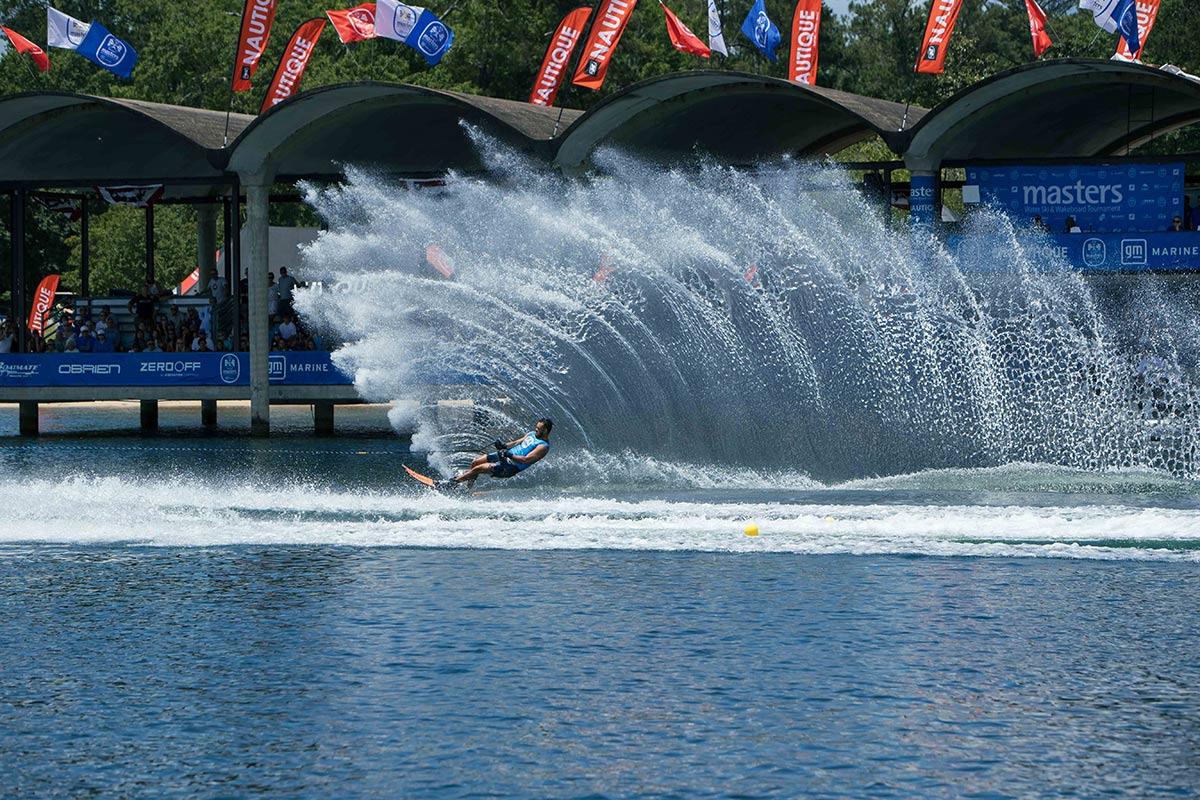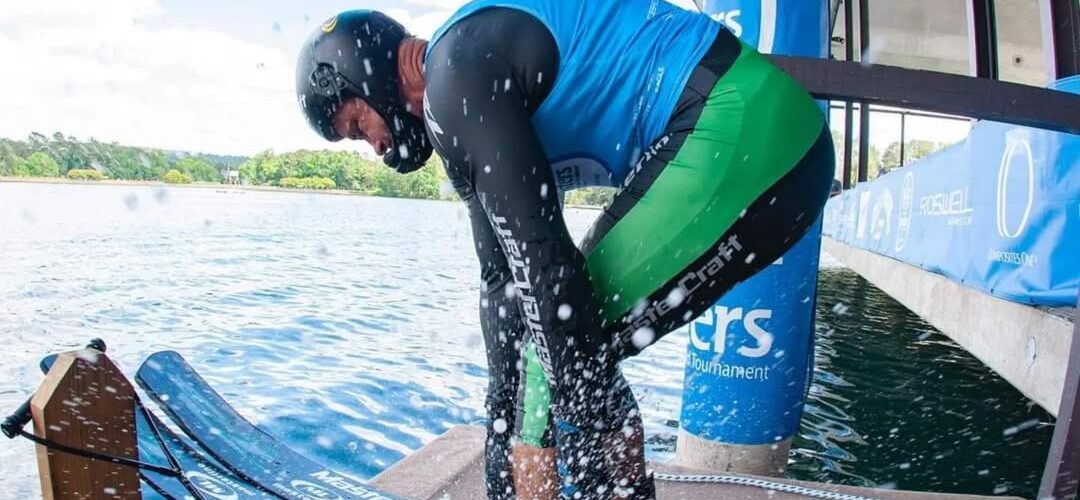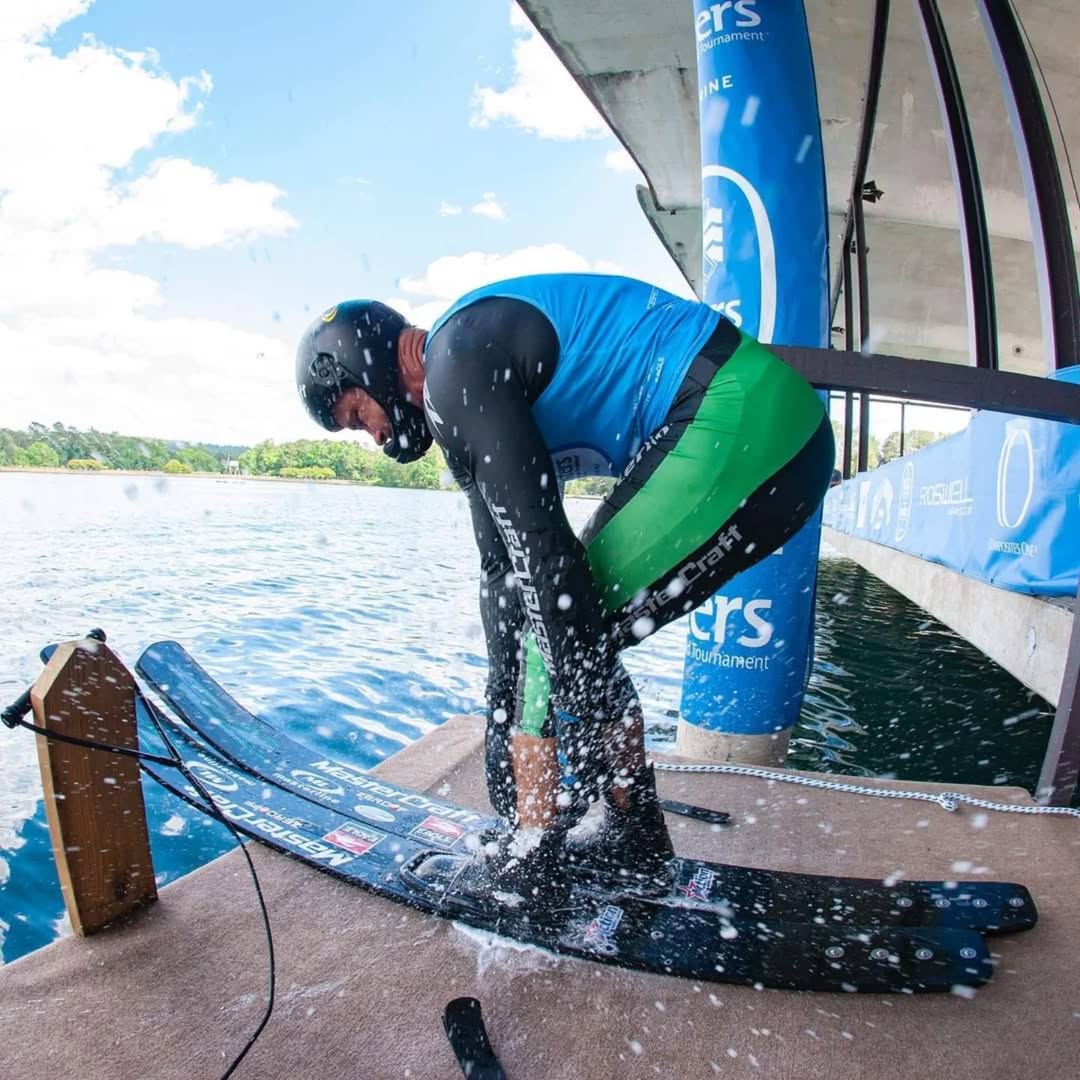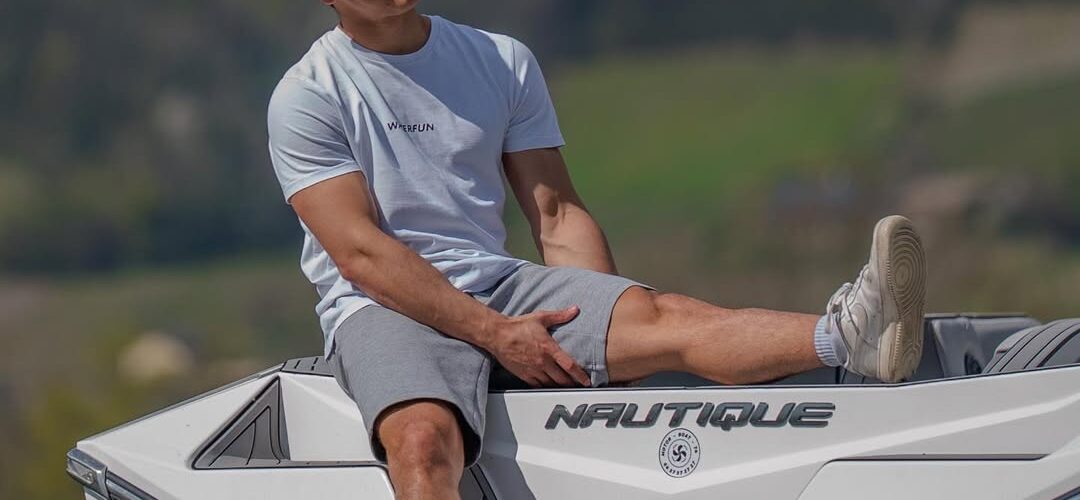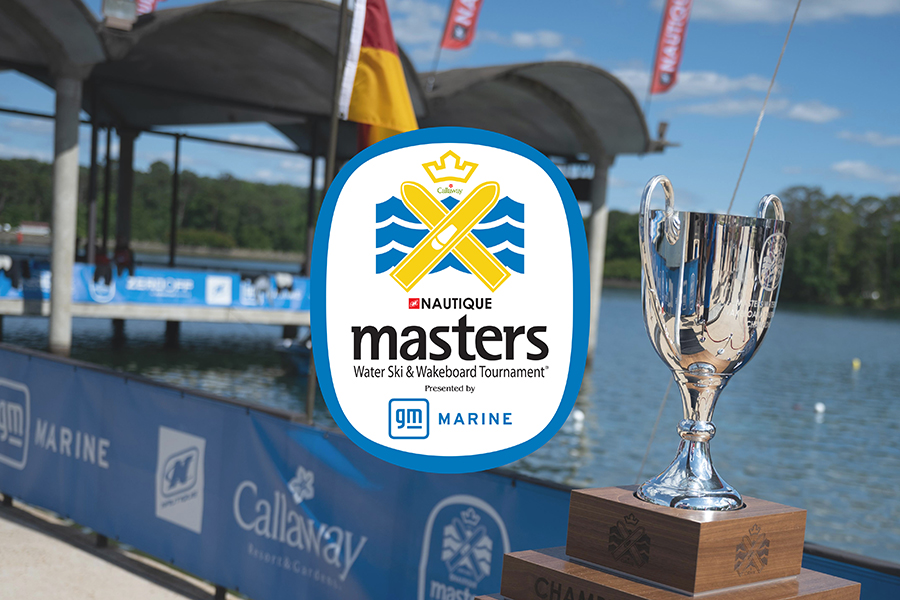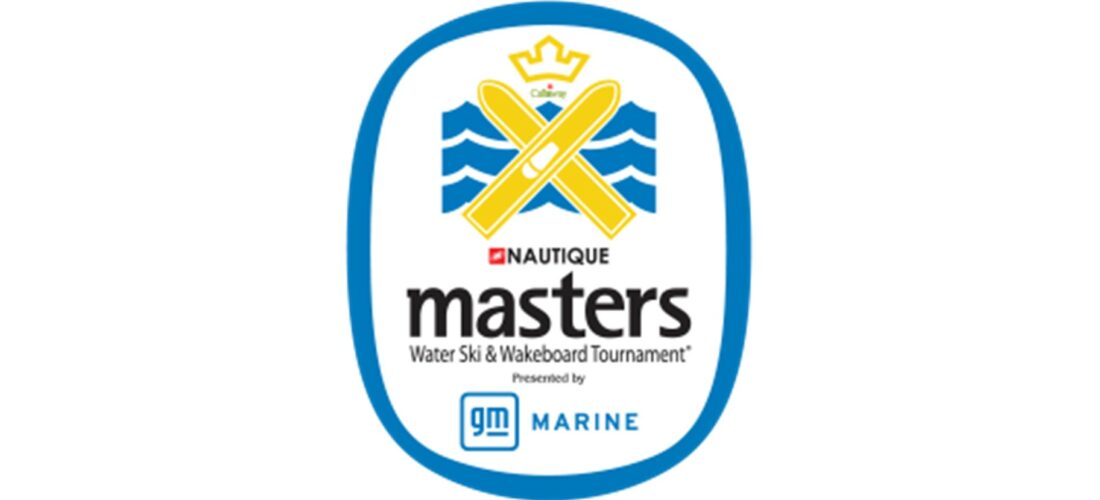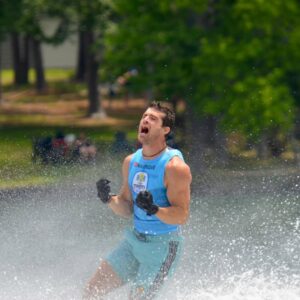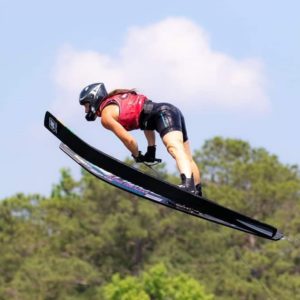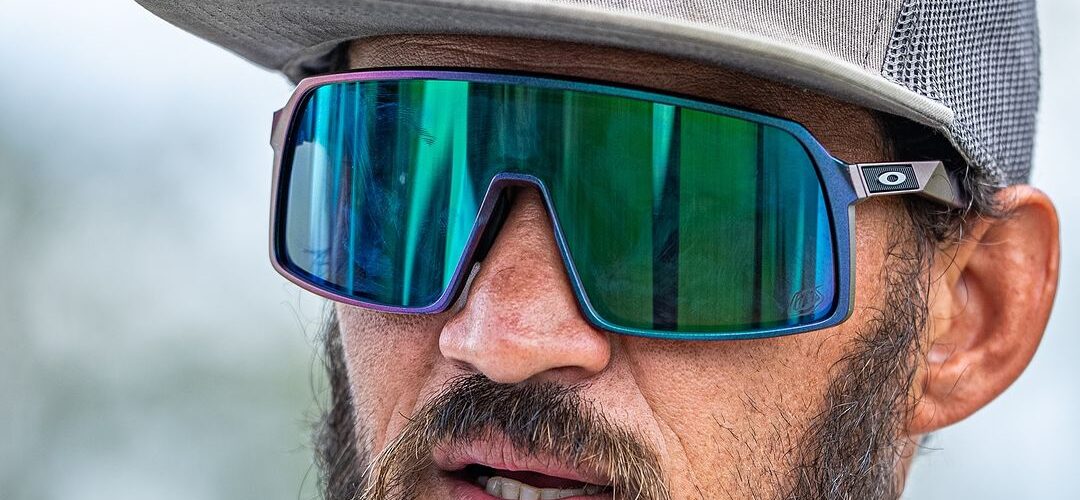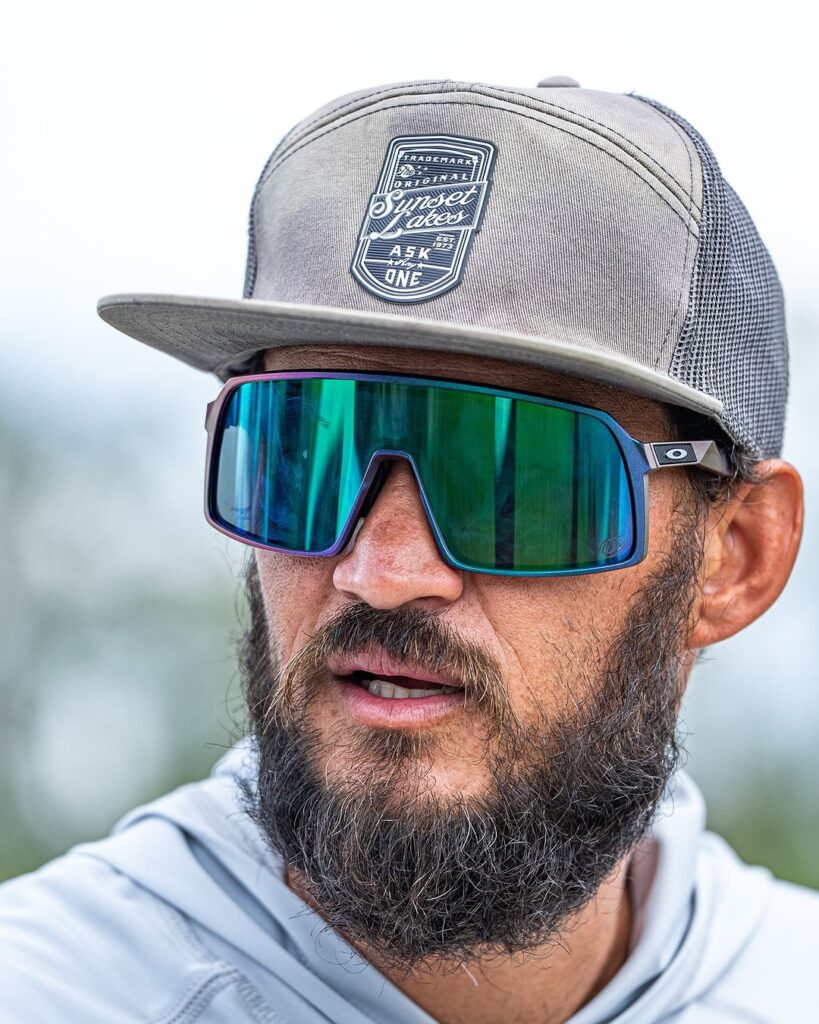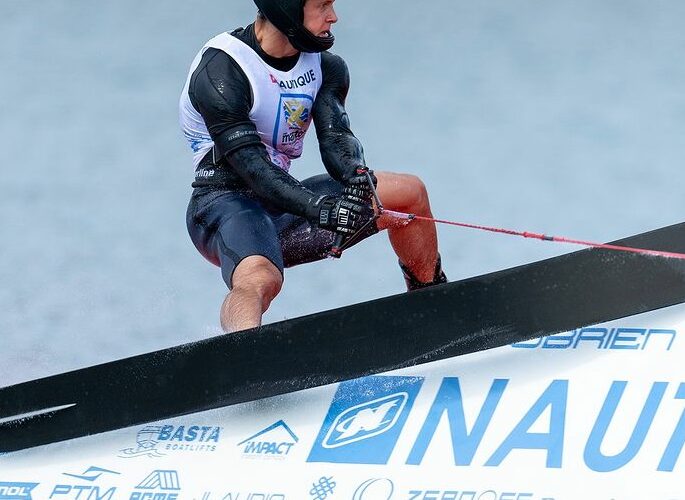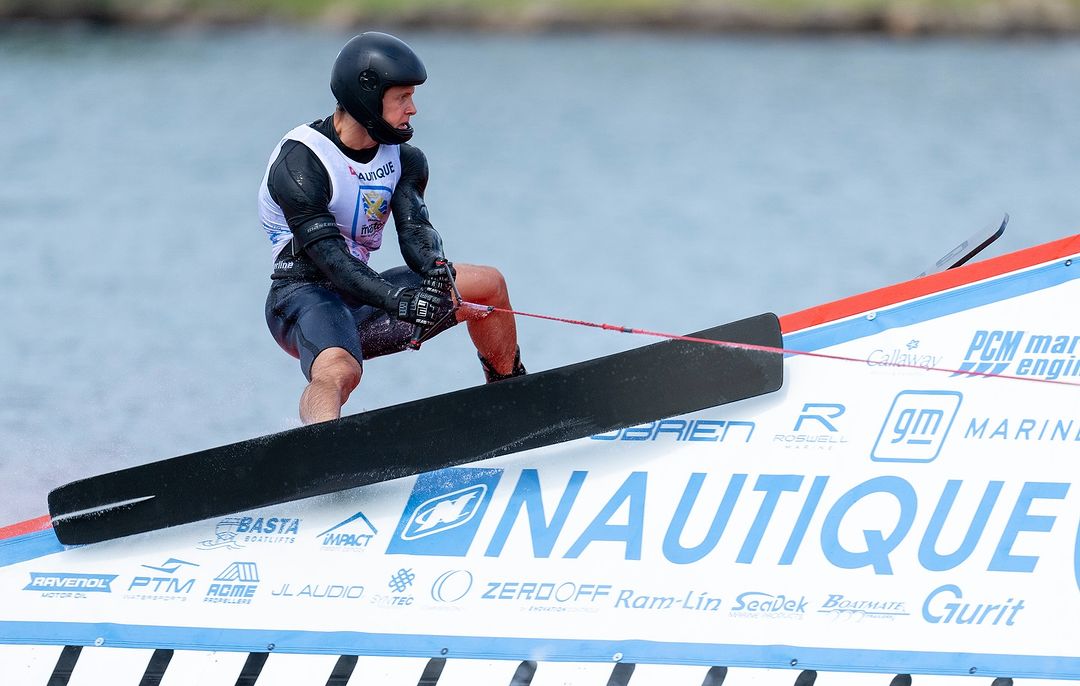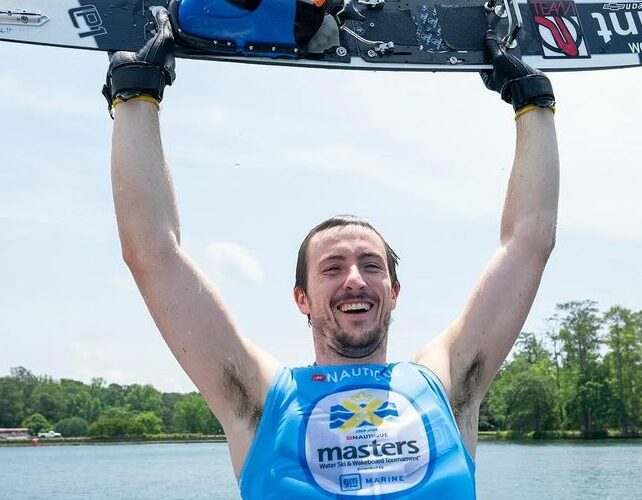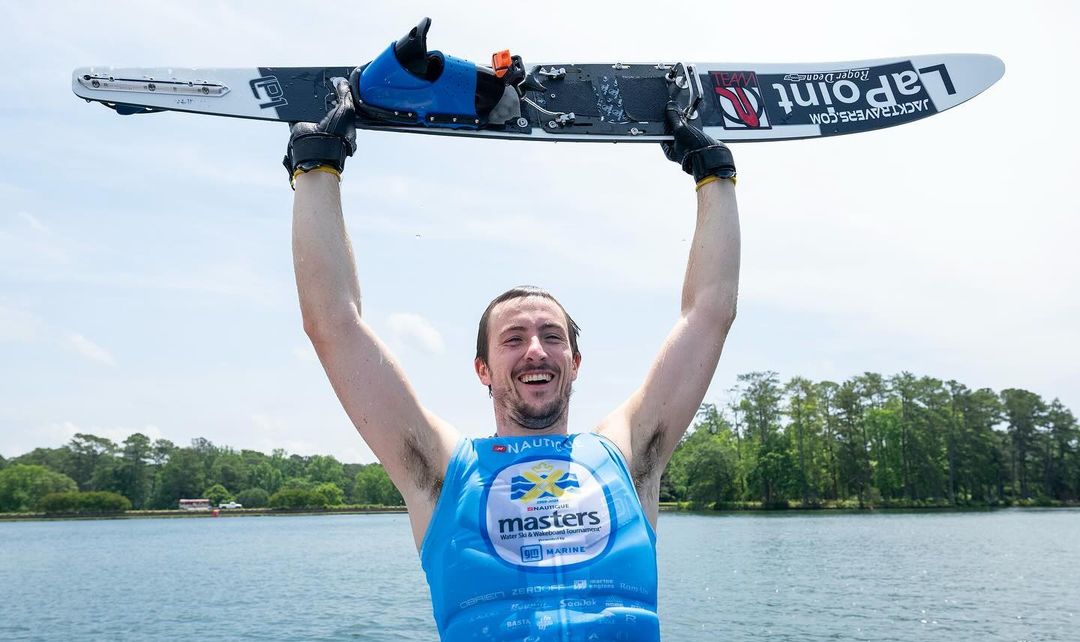Banned, broken, but never beaten: Winter headlines blockbuster Masters
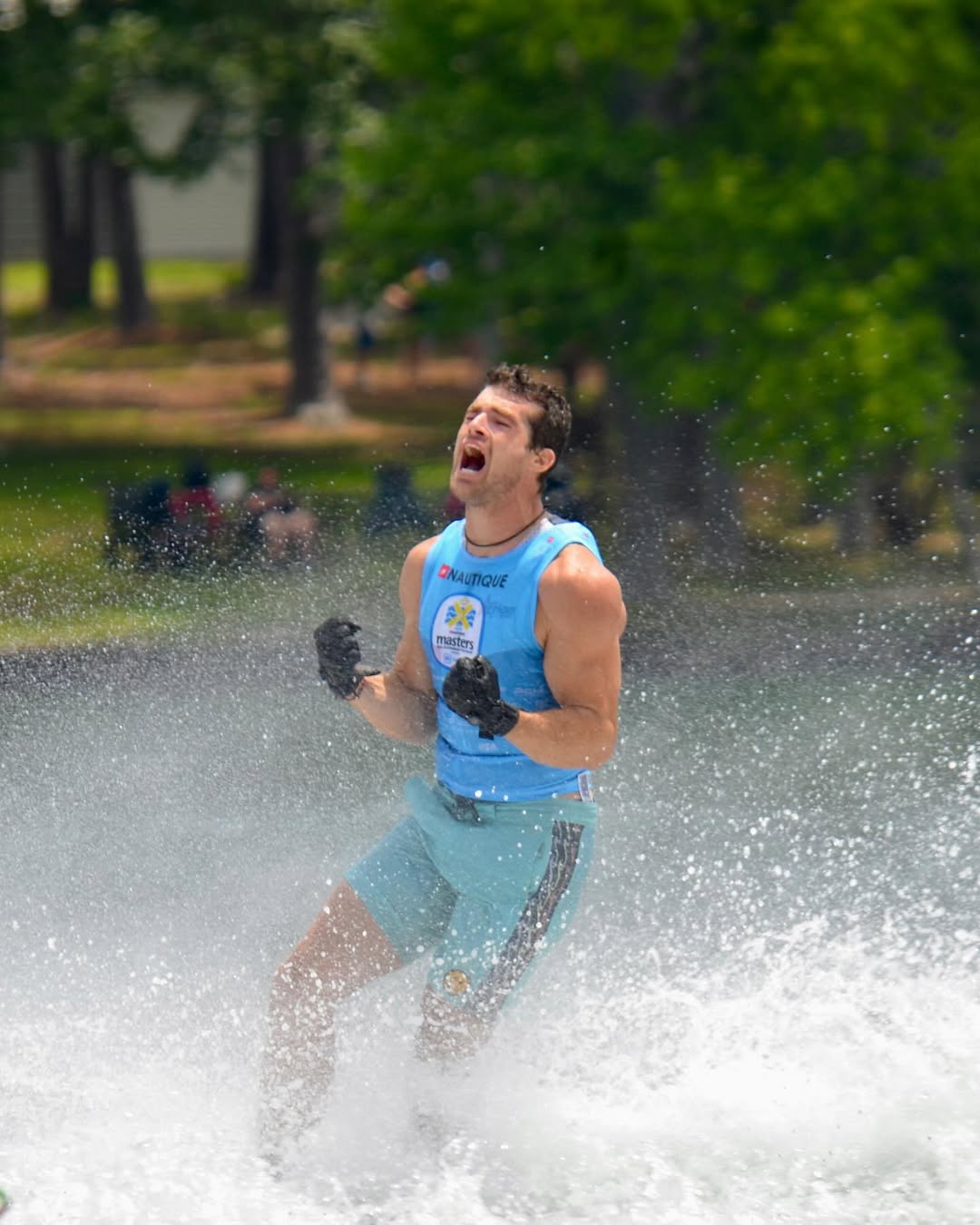
Freddie Winter celebrates his victory in men’s slalom (image: @bretellisphotography)
By Jack Burden
PINE MOUNTAIN, Ga. — The 65th Masters Water Ski & Wakeboard Tournament wrapped up Sunday beneath the tree-lined shores of Robin Lake, with records, redemption arcs, and rare feats all leaving their mark on one of the sport’s most storied stages.
History doesn’t just hang in the air at Callaway Gardens—it breathes down your neck. From the stirring boat parade to the veteran-honoring ceremonies, the Masters isn’t just a tournament; it’s a stage where legacies are made, and occasionally, broken. And this year, they cracked wide open.
Let’s start with the history on Friday. Germany’s Tim Wild delivered a performance for the ages, sweeping all four Junior Masters titles: slalom, tricks, jump, and overall. In doing so, he became the first male ever to achieve the sweep and only the third skier in Junior Masters history to pull it off—joining legends Regina Jaquess and Brandi Hunt. Wild’s path to perfection included victories over multiple reigning junior world champions and a tricks field featuring the 12,000-point club’s newest member.
By the end of Saturday’s brutal semifinals—where 45 skiers battled for just 12 final spots per gender—much of the sport’s royalty had been dethroned. Patricio Font. William Asher. Whitney McClintock Rini. Jaimee Bull. Gone. In their place: hungry challengers, career comebacks, and a few bold debutantes.
Sunday’s finals opened with one of the most anticipated showdowns, with the intensifying battle between Erika Lang and Neilly Ross for the world record expected to play out real time on the waters of Robin Lake.
Lang continued her stranglehold on the division, scoring 10,530 points to win her sixth Masters title. Her record in professional events since the start of 2023 now extends to 10 wins in 12 tournaments—including all three this year: Moomba Masters, Swiss Pro Tricks, and now the U.S. Masters.
Yet in many ways, it was Germany’s Giannina Bonnemann Mechler who stole the spotlight. Making a triumphant return to the podium less than a year after giving birth, she edged out defending champion Anna Gay Hunter and world record holder Ross with back-to-back 10,000+ scores.
In the men’s tricks final, Jake Abelson proved that last year’s world record was just the beginning. He threw down 12,190 points to win his second major title of 2025—a leap of faith rewarded after skipping Junior Masters eligibility to compete in the Open division.
“A dream come true,” shared the 17-year-old after his victory.
Joel Poland’s third-place finish may have come as a shock. After two stand-up passes and an exuberant celebration from the Brit—the top seed and last skier off the dock—the announcers couldn’t call it between Poland and Abelson, speculating, “I think it’s going to be extremely close, only a couple hundred points that separate them.”
But the final score told a different story: more than 1,500 points separated the two. Judges scrubbed multiple tricks from both of Poland’s runs—but even if all had been credited, his score still wouldn’t have caught Abelson’s winning mark. Nevertheless, the apparent controversy may have lit a fire under Poland for what came later.
If tricks was about cementing legacies, slalom was about redemption.
For the women, 41-year-old Vennesa Vieke, who seems to get better with each passing year, set the pace early with a gritty 1.5 @ 10.75m (39.5′ off). Her mark held through challenges from defending champion Jaquess and Ross. Then came Allie Nicholson, navigating the minefield to a clean 2 @ 10.75m—and her first Masters title.
Arguably the hardest-working skier in professional slalom today, Nicholson has competed in more pro events over the past two years than anyone—male or female. Often stuck behind the dominant trio of Bull, Jaquess, and McClintock Rini, she looked composed as the final skier off the dock—doing exactly what was needed to take the win and perhaps signaling a long-awaited sea change.
The men’s final? Pure Hollywood.
He was banned. He was broken. But now, he’s back.
Less than a year ago, Freddie Winter suffered a potentially career-ending injury—a shattered femur from a crash. Adding to the drama: he had been banned from the 2023 Masters for alleged unsportsmanlike conduct in 2022.
Now, back on Robin Lake, the fiery Brit skied like a man on a mission. Chasing a lead score of 2 @ 10.25m set by world record holder Nate Smith, Winter—last off the dock—threw himself outside of three ball for the win. His third Masters title. His sweetest yet.
“Probably the most emotional moment of my life,” Winter said. “So much self-doubt and fear I wouldn’t get back here over the last 10 months and 29 days.”
“I’ve won here before, but those meant nothing compared to this.”
In women’s jump, a Hanna Straltsova victory often feels inevitable in the post-Jacinta Carroll landscape. But this one felt anything but secure.
Americans Lauren Morgan and Brittany Greenwood Wharton came out swinging in prelims with 174- and 175-foot jumps, respectively—easily outdistancing Straltsova’s 169.
Then, skiing early in the finals, Straltsova posted 53.6 meters (176′). The door was open, but neither Morgan nor Wharton could capitalize.
“You are never prepared enough for the Masters,” shared a reflective Straltsova. “It shows you your weak points and teaches you lessons every time you come.”
Then came the grand finale.
Remember: Poland barely made the final, edging Louis Duplan-Fribourg by a single foot. First off the dock, he put any questions about his jump form to rest—launching a monster 70.1-meter (230′) leap to lay down a massive target.
The remaining finalists—Luca Rauchenwald, Igor Morozov, and Ryan Dodd—all charged hard at the lead. Poland watched nervously from the pavilion.
“Anticipation was 11/10,” he said. “Felt sick waiting for the results.”
Dodd, the world record holder and reigning world champion, came closest. But when the Canadian passed on his final attempt, Poland had his win—and a statement. It’s now been over a year since Dodd claimed a professional title, and the pressure is mounting ahead of his bid for an unprecedented sixth straight world championship.
By sunset, the story was clear. This wasn’t just another Masters. This was a turning point.
From milestone performances to long-awaited redemption, the 65th Masters was a showcase of resilience, risk, and razor-thin margins. And with the debut of the 2026 Ski Nautique onsite—complete with on-air walkthroughs—the event also hinted at what’s next.
For now, the numbers are in, the titles awarded, and the world’s best return to the road—leaving behind another unforgettable chapter on Robin Lake.
And the summer? It’s just getting started.
